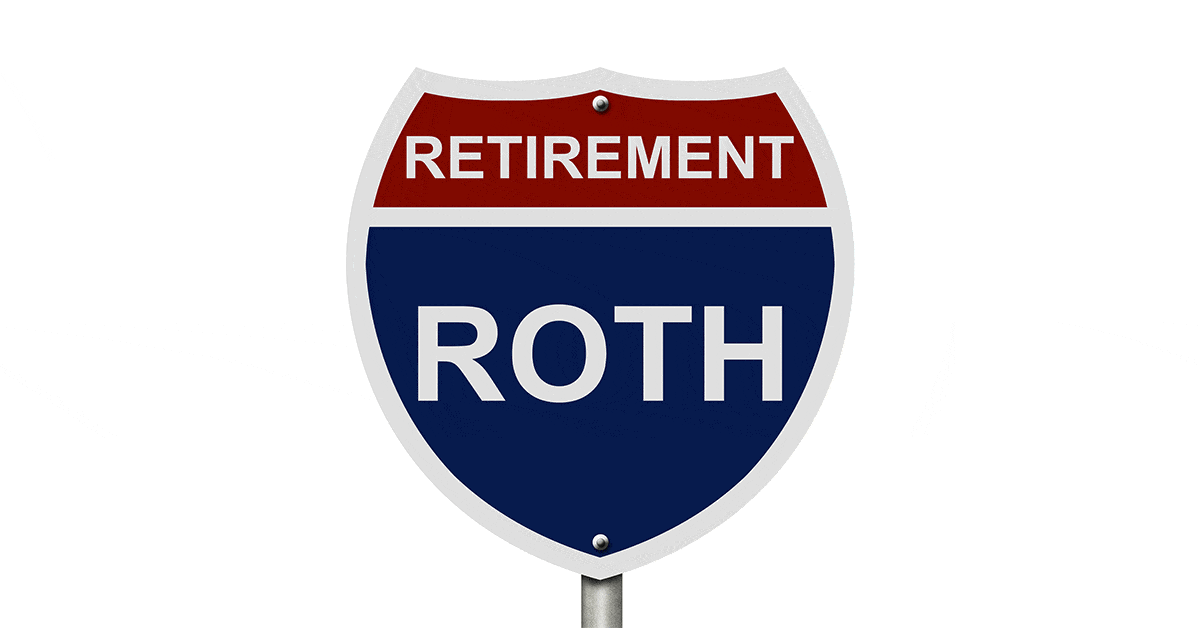
Benefits of a Roth IRA
- Tax-free withdrawals. Although a Roth IRA does not provide a current tax benefit as you contribute after-tax dollars to your account. But withdrawals are tax-free. If you think your tax rate in retirement will be higher than it was while you were working, you should consider a Roth IRA. Two factors could drive this:
- You expect to make more money in retirement than you did while working. Yes, this is possible if you save diligently and invest well while you’re working.
- You expect tax rates to increase.
- Roth IRAs can reduce how much you pay in taxes on your Social Security benefits. Depending on how much money you earn in retirement, the amount of your Social Security income that is subject to current taxes can range from 0% to 85%. This is based on your provisional income. To calculate provisional income, you start with all income that would normally be taxed. You then add non-taxable income such as municipal bond income plus one-half of your Social Security benefits. (See this blog for more information on the taxation of Social Security income.) Since you don’t pay taxes on money withdrawn from a Roth IRA, such withdrawals do not count as income.
- Roth IRAs can decrease your Income Related Monthly Adjustment Amount (IRMAA). Unless you’re still covered by an employee healthcare plan, you can expect to enroll in Medicare at age 65. Your Part B premiums are based on your income. Not your current year’s income though. Instead, they get based on your tax return from two years ago.
For example, the premiums retirees are paying in 2021 are based on their 2019 income. If your income exceeds $88,000 (single) or $176,000 (married), you will pay more for Medicare than someone who makes less. There are another four brackets above this initial one. Once again, Roth withdrawals do not increase your income for purposes of determining your Medicare premiums.
Note that because Medicare premiums are based on your income from two years ago, you can be assessed a higher premium when you first retire. You can file an appeal if you believe your IRMAA is incorrect for a qualifying reason. As discussed in more detail here, work stoppage is one of the seven qualifying life-changing events that can allow for a redetermination of your Part B premium.
- You don’t have to take required minimum distributions (RMDs) from a Roth IRA beginning at age 72. You must, however, take RMDs from a Roth 401k or a Roth 403b. You can get around this requirement if you transfer the money to a Roth IRA.
- You can access money in a Roth IRA before age 59 ½ if you need it. Ideally, you want to save any money you deposit in your Roth IRA until retirement. But if you need it, you can withdraw money you contribute to a Roth IRA tax-free at any age. Your contributions also come out before any investment gains, so you don’t have to worry about figuring out how the withdrawal should be treated. You do have to track your contributions. If you need to withdraw more money than you contributed, you will have to pay taxes and penalties.
This feature makes Roth IRAs an attractive option for those that are not sure if they can leave the money they contribute to their account in place until they reach retirement.
- You can leave tax-free assets to your heirs. This benefit has significant value to those who have children or other beneficiaries who are high earners. Any distributions they receive from a traditional IRA get added to their other taxable income. They then get taxed at their highest marginal tax rate.
The SECURE Act made this benefit of Roth IRAs more significant. Under prior law, RMDs from an inherited IRA were based on the beneficiary’s life expectancy. The SECURE Act limits the withdrawal period for Inherited IRAs to 10 years. This limit applies to both Inherited traditional IRAs and inherited Roth IRAs. (Note that an exception exists for spouses and certain other beneficiaries.)
- You can start a Roth IRA for your child or grandchild to give them a great head start on building their retirement savings. For example, say that your child or grandchild gets a summer job. If they have earned income, they can open an IRA. It doesn’t matter how old they are. But the money doesn’t have to come from them. You can help them open the IRA. You can deposit money into their account. You could do this through an outright gift. You could also create a matching program. Tell them that for every dollar you put in the account, You’ll match it. You could double it, too. Remember that some limitations apply. The maximum contribution is $6,000 a year. You also can’t contribute more than they earn.
Our team here at Shore Financial Planning (SFP) always has our clients best interest in mind. As fiduciaries, we’ve taken an oath to prioritize your financial well-being above all else even during hard times. We’ll treat you with the honesty and integrity you’d expect from someone with whom you are entrusting your future.